Emperor Phillips is a big 17-year-old – about six-and-a-half feet tall – who doesn’t look like much would intimate him.
But Phillips, a Belmont High School junior who lives in Boston, admitted he was “real nervous” as he stepped up to speak to an overflow crowd at the Martin Luther King Birthday Breakfast held at the high school’s lunch room.
Brought up by storyteller Sumner McClain, Phillips just wanted the chance to “speak from the heart.”
“I realize I have a lot to be thankful for,” he said. “I wouldn’t be here today if it weren’t for Martin Luther King.”
Three years ago, Phillips attended a high school in Boston where “you entered through a metal detector, and it wasn’t very safe.”
Now at Belmont High School, “I have a solid education,” Phillips said, praising the program established by the Metropolitan Council for Educational Opportunity (METCO) – which McClain has been a longtime staffer – giving Boston children the opportunity to attend suburban school district.
METCO’s purpose is tied to King’s legacy of equal opportunity in all aspects of life, “and I’m really grateful for,” he said.
Phillips one wish was “that more of my friends could come here and get a good education,” he told the Belmontonian.
Monday marked the 21st annual celebration of the civil rights leader’s birthday, hosted by the Belmont Human Rights Commission and Belmont Against Racism, a commemoration highlighted by the expressions of hope and action during the best attended MLK event in recent memory.
Along with songs, acknowledgments and speeches, it was Phillips and the morning’s keynote speaker, WGBH Senior Investigative Journalist Philip Martin who spoke to the audience’s hopes for the future.
“What if we do nothing” in the face of institutional racism, Martin asked the audience. In a nation that “is sweltering with racial tension in the height of winter” after a year in which several African-American men and teenagers were killed by police officers across the country, “what if we absolutely nothing as the fires rage around us as children ask, ‘Do black lives matter?'”
Martin told the assembled crowd that a public consensus has grown in the past week that “it wasn’t the best way to demonstrate that black lives matter” for more than two dozen protestors to promote their cause by blocking highway I-95 in Boston or Medford to the chagrin of commuters and the public.
“But a young woman I corresponded on Twitter says, ‘What if they did nothing?'” asked Martin. Would anyone, even those commit to changing the system, be discussing black lives in mid-January if not for that direct action?
“And indeed, all lives do matter. No doubt most people believe this sincerely. But subconsciously, some lives matter less than others,” he said, referring to his reporting on the worst of humanity; those who exploit children and women “of all colors and poor” in the slavery known as the human trafficking trade.
Too many times Martin has heard exploiters said the woman “is just a prostitute” while others explain it away since “these people don’t value life at the same level [as we do].'”
“How is it that some lives are valued less than others and what if we do nothing about this?” Martin said, pointing “we lament lives lost in Paris very differently … than in Nigeria.”
A Thai father whose daughter is returned to her home after she was rescued from sexual bondage, “shed tears real and emotional stirring than any in Belmont, as any tears in New York or … Detroit.”
Speaking of Pope Francis’ conversation with a crying 12 year old in Manila who asked why does God allow children to suffer as sex slaves, Martin paused, taken by the emotion of the moment, then said Frances spoke to her with compassion and love.
“He said her life mattered. He humanized the situation. And what if we did nothing about it?” he said.
While all lives matter, Martin said there are attempts to diminish black lives with the “crucibles of imperfection,” that those victims of fatal police shootings were drinking, committing minor illegal acts, not listening to commands quickly enough.
“This crucible … is often what makes white Americans hesitant to take to criticize or take issue, to disagree with what others see at least as questionable behavior,” he noted.
While many communities and individuals in law enforcement “do the right thing, it is the system that has to be re-examined and reworked. And it is up to all of us to decide what to do in our own capacities,” he said.
“If all lives mattered, act like it matters. Behave like it matters. Legislate like it matters, Adjudicate like it matters. Black lives matter only if they truly matter,” he said.
What if King or generations of civil rights leaders had done nothing if it had settled for the normalcy of the time, Martin asked.
“Would there be a [former Gov.] Deval Patrick, a [President] Obama, the young man who was speaking from the heart earlier today?”
And if the consensus is to accept this new normalcy and wait for problems of justice and the judicial system to work themselves out, “tensions will increase and undermine our sense of nation,” he said.
“Do something to make sure that all lives matter.”
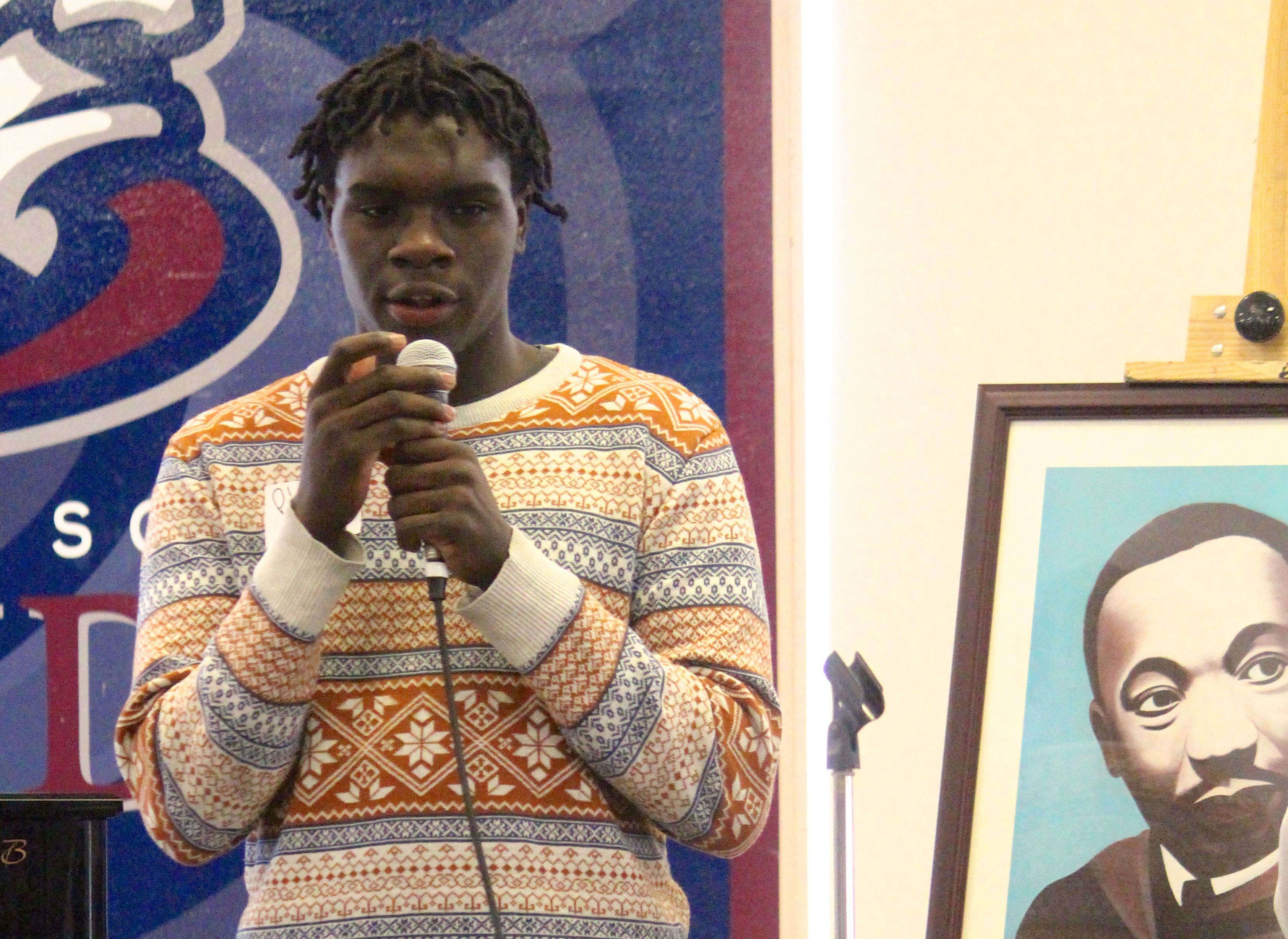
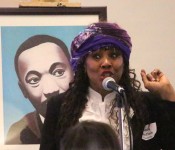
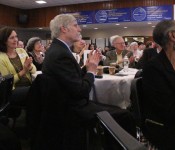
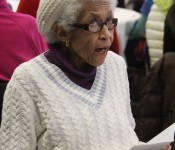
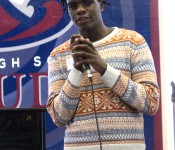
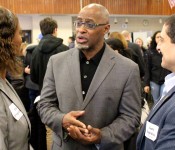
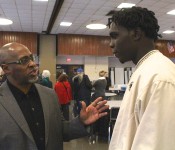







Leave a Review or Comment